MAY 25, 2011 11:14AM
The death of Osama bin Laden, like his life, was a noisy affair. Throughout the world, the media finally had something really big to report, because after the earthquake and tsunami in Japan, the meltdowns at Fukushima and the ongoing “Arab spring,” now brought to us from Libya and Syria, consumers were getting restless for something new, something spicy, something with some extra-strength pizzazz to enliven the daily news. After all, how much leading-bleeding reporting from Misrata can one take before it gets a little repetitive? Even Dominique Strauss-Kahn’s adventures wear thin after a short while.
So Obama was the one who got Osama, dead, not alive, and that event, carried out was carried out by yet another gang of heroes, accompanied by a cute heroic dog. A delightful picture that sent shock waves throughout the world and generated inordinate amounts of whatever passes for column inches these days. In Washington, New York and other points on the globe, large crowds came out to jubilate, to express their unbounded joy at the demise of one of the most effective bugaboos since Saddam Hussein and Manuel Noriega – who, like Osama bin Laden, shared the distinction of having been a good friends of the US at some time, and recipients of our tax dollars and military aid in exchange for proxy work. And the media joined in and heated up the frenzy.
Encores and more
Unlike with the handling of budget talks with the GOP, the health insurance debate, or even the bailouts, this time the Obama administration put on a fairly good show, dragging it out with a surprise, gravitas-filled presidential visit to ground zero, keeping everyone on their toes with talk of violent pictures, dumping the body in the sea, lots of praise for the anonymous wet-ops group of Navy SEALs, keeping the mystery going just enough to draw the hype. To this day the information is dripping out in homeopathic doses, mostly silly stuff that feeds the ghoulish need to know what Osama’s personal life was like as he holed up in Pakistan, delighting all the while in the ravages he caused. It’s all picture perfect, Hollywood and Marvel Comics live and wrapped in one. The message says: “Osama bin Laden, author of the senseless and mindless 9/11 act has now been killed, good triumphs, evil is defeated.” Or in the words of the President “Justice has been done, the world is safer.”
Quick solutions, perhaps too quick
Has justice been done? Is the world safer? Did the execution of Osama bin Laden really bring closure, as so many pundits would like to convince themselves it seems? Perhaps at one level yes, because tracking terrorists will undoubtedly be a little easier now with the information from Osama bin Laden’s files. But how that is managed is or should be cloak and dagger stuff. Suffice to say: any well-organized terrorist network will have set up contingencies.
Closure or safety are another matter. Osama bin Laden did not exist in a vacuum, nor for a period lasting from 9/11 to 1/5. It would be naïve to think that ending the Osama episode also concluded the “war on terror” series.
The administration and the media seem to revel in the images of Osama bin Laden as a dumpy old man, like Saddam Hussein in his mole hole. One can seriously doubt whether this will be of any relief to the families and friends of 9/11 victims. To get true justice, to understand and integrate the lessons of the past 10 or more years, to finally close the book on Osama bin Laden would have most probably required at least a proper trial. A trial, though, would have spawned terrorist acts, the officials all said, a flimsy excuse at best, but one that remained unquestioned. If anything, going through the judicial ritual, as was done with the Nazis at Nuremberg, or even Manuel Noriega, would have proven that our democratic rule of law is still strong and functional. Alas, it is not that functional anymore, and thus by getting himself killed, Osama bin Laden once again managed to triumph in a bizarre way.
Whether the killing was an operational necessity or an expedient decision is an open question. The inexorable momentum of the news will allow for no real reflection, just the creation of a kind of consensus that the act was logical and good, and anything else would have been unacceptable. By allowing the publication of a picture depicting the entire cabinet watching the operation unfold, the Obama administration managed to both identify those in charge and hence responsible for the act, while at the same time spreading out the guilt, should anyone dare doubt the legality of it.
Nuremberg did it
In the absence of reality, though, we the observers have to contend with appearance, which has become our reality in a world dominated by advertising, self-promotion and public relations. As long as the message is well crafted and acceptable and fills some emotional gap or desire, it is taken as evidence. Popularity then serves as the yardstick for judgment, doubting the majority is not an option. Democratic processes are governed by mob rule. It would behoove the nation as a whole to stop and think for once, because even though “we got Osama bin Laden,” his strategy and legacy may well have been a degree more subtle and effective than the simpletons cackling away on TV would have us believe.
One challenge would have been to understand why someone would organize such a fiendish attack as 9/11. Was it really “senseless” in Osama bin Laden’s mind (or in the mind of whoever organized the attack, which is now beyond our intelligence)? Was it just to kill Americans for some private reason?
Looking back
Suffice to say, the phenomenal noise those planes made crashing into the Twin Towers and the Pentagon and a remote area of Pennsylvania on September 11, 2001, is still echoing in everybody’s ear. In the immediate aftermath, the world was treated to a drumfire of slogan-like platitudes, dead-or-alive, smoke’em-out, terrorists all over the place, our liberties, their hatred, them and us. It was all in convenient bite-sized black and white portions, no fuss, no muss. Anyone who did not agree with the president and his cohorts, like peaceniks and some Democrats, was “them.” Period. No discussions accepted, no cool heads could prevail. Truth and individual liberties, be damned. To say a word against the George Bush strategy was tantamount to treason. Any opposition, as always happens in such cases, was pushed into a rhetorical corner. Fear and hysteria gripped the nation.
At one level, the noise helped disguise the fact that George Walker Bush had been asleep at the helm in spite of warnings of a serious threat to the nation. So all eyes were immediately refocused on this strange bird, Osama bin Laden, now indelibly associated with 9/11, but whom an American Grand Jury had already found guilty of conspiring to attack US military installations in 1998. That was during the Clinton years, however, when the World Trade Center was attacked the first time (very soon after George Bush Senior handed over the presidency to Bill Clinton). Clinton was not very successful in convincing the GOP of the need to shore up the national defenses against terrorist attacks. Republican Congressmen were more interested in spreading the president’s dalliances around the globe and making a fool of him and the nation.
Dissembling
The Patriot Act was thus rammed down everyone’s throats. In the Senate, only one lone figure voted No, Russ Feingold:
“The first caution was that we must continue to respect our Constitution and protect our civil liberties in the wake of the attacks. As the chairman of the Constitution Subcommittee of the Judiciary Committee, I recognize that this is a different world with different technologies, different issues, and different threats. Yet we must examine every item that is proposed in response to these events to be sure we are not rewarding these terrorists and weakening ourselves by giving up the cherished freedoms that they seek to destroy.”
That took courage. The Act, which is scheduled to end on May 29, 2011, was voted in. What followed was deafening cacophony freely mixed with imagery as crazy and perplexing as an Erró, and accompanied by the nightly swatch of color-coded alerts that went up and down, haphazardly, for all intents and purposes, or whenever the Bush people needed some distraction. The willing accomplices in this grand guignol were the nation’s newsmen and –women, and the astute businesspersons peddling security gadgets. It was like the Fifties all over again, simple stuff in 4/4 and C major, when the USSR was The Enemy and all one needed to do was hide under a desk if an A-bomb went off.
Lots of fearmongering, no substance
(Note to self: Vociferous patriotism should always get alarm bells ringing, because it usually means that someone in power wants to do something unpopular.) Indeed, the public was served the usual bread and circus and remained thoroughly confused as to what was real and fake. Self-inflating evangelists added the screeching sound of their axes grinding. And in the strange audio-visual haze, the media gave scant attention to the steady chiseling away at civil rights, to the unwieldy and ineffective policies of a government stocked with ideologues and cronies, to the pernicious mixing up of the private sector and government, or even the one-sided economic boom that was heading for bust.
In the months and then years following 9/11, fundamental rights were eroded in the name of national security. The tide of violent rhetoric and unadulterated bilge also generated a mobocracy of superpatriots who began randomly attacking anyone of Muslim faith or suspected thereof, like Sikhs who wear turbans.* (Even today, there is a class of con artists and other frauds willing to sacrifice their self-respect, like pastor Jones, or all those bizarre birthers, to heave themselves into prominence and profit from riding anti-Muslim sentiment.) Wiretapping became commonplace (still is most probably), arrests arbitrary, peace groups were harassed by the FBI, private rights started bending to the point of breaking in the face of alleged national security needs. A survey showed at one point that a majority felt that free speech had its limits, and reading a book about Islam in a public library could get you flagged. The Valery Plame affair stands out as a notoriously dangerous encroachment on someone’s life by government. It looked like the salami tactic of the Communist parties in Eastern Europe in the post-war era.
Torture(d) logic
The country even engaged in a spurious debate on the whether torture (waterboarding) was effective and whether it was even allowed. A moot debate, since it is notoriously ineffective and no one in their right mind can deny that waterboarding is torture and was always considered such, no matter how much it is called “enhanced interrogation.”* Moreover, waterboarding was not the only means of torture used, notably in Afghanistan and in the countries involved in the extraordinary rendition scheme. To this came prisoner abuse in many forms (see Abu Ghraib) obviously enabled and supported by ignorant, brutish commanders and sanctioned from farther up the hierarchy. But the US population could not put aside its fear and its differences to unite on upholding the law, and since any reading is for left-wing-elitist-college types, the debate ground on within a cocoon of total ignorance.
Waterboarding, it’s torture and a war crime
At any rate, the disgraceful trampling of human and civil rights culminated in the Military Commissions Act of 2006, which might have shocked Americans into a new revolution 40 years prior. But in 2006, after decades of television news, confusing and equivocating punditism, and a five-year diet of hyper-news, fear-mongering, and sheer propaganda from Washington trickling down through a 24-hour news cycle starving for content, We The People were ready to surrender habeas corpus with barely a whimper. Guantanamo and permanent detention without trial were thus justified, arrests on suspicion as well, and torture under whatever name with it. And whenever anyone complained, they were literally accused of treason (New Yorker journalist Seymour Hersch, for example, who was more or less called a terrorist for reporting on Richard Perle’s wheeling and dealing in the private sector). A majority in both houses voted for the Act. Amazingly, one of the pro crowd, Republican Arlen Specter, pointed out that 900 years of habeas corpus were being undone. Two years later, the Supreme Court came to the rescue and voted (5-4) to restore habeas corpus at least.
Spreading the news
What the USA does within its own borders is its own business. But George Walker Bush and his people (Cheney, Rice, and less visible figures like the old desk-bound Cold Warriors Perle and Wolfowitz) were also hell bent on getting boots on the ground to defend US exceptionalism and spread the neo-conservative tripe. And, one can only suspect, keep the country whipped into shape.
It was all in response to the hysteria they were themselves creating. Oil may also have played a role in the decision-making, but it’s not as relevant as some would believe. The casus belli: Terror. The Bush administration managed to trigger a permanent war like that in Orwell’s 1984, a war to justify any act no matter how brutal, no matter how un-democratic. The absurdity of the “war on terror” (like the “war on drugs”) is worthy of Kafka. It was never defined, there are no benchmarks, no milestones, no road maps, no goals, no exit strategies, no rules. To this end, however, we lowered the bar even further on democratic ideals and ethics: Alberto Gonzalez, as the White House chief legal advisor, went so far as to call some of the Geneva Convention provisions “quaint and obsolete.” Only one person in the administration, Colin Powell, one of the very tragic, almost Shakespearean, figures on the American political scene, protested. He saw, no doubt, that the nation was lowering it’s standards to those of the “other side.” But the “other side” was indefinable, so in the end, the task of creating the enemy was left up to the noise machine in the USA, which proved short on info and rich in easily swallowed stereotypes. The snake started eating its own tail.
Fighting shadows
In fact the only thing that can be said of the “war on terror” is that it is an admission of defeat. Terrorism has always existed as a form of violent expression of the downtrodden. Even Russia under the Czars was beset by terror, for instance. But in the USA, every pundit, every pol and every fraud with a pulpit compared Osama bin Laden to Hitler or Stalin, probably for no other reason than these are perhaps the only really Big Names in Monstrosity known to the general public. The comparison was totally false. Gavrilo Princip, today considered something of a hero by the formerly allied powers of World War One, also committed an act of terror and was the member of a secret, terrorist society. His act set off World War One, we all learn in school. But the real reason for the outbreak of World War One, was the sheer hubris and aggressiveness of the Habsburg government in Austro-Hungary, which was, like the Bush administration, determined to go to war come hell or high water. Twelve million dead later, plus countless casualties including millions of acres of land, the Habsburg Empire was dismantled. And the social and political seed was sewn for the next war. Osama bin Laden was, I fear, closer to Gavrilo Princip than Hitler. He understood that the fundamental aim of terrorism is to push a dominant power into destroying itself.
Hitting the neural point: Gavrilo Princip’s assassination of Archduke Ferdinand in Sarajevo, 1914
All those allegedly sharp heads in the Bush White House couldn’t figure that out because they were pursuing their own ideological hallucinations and a completely flawed policy of applying military force to police action. Combating terrorism is asymmetrical, and sending a huge and high-tech army to hunt down a few fellows is like trying to swat a fly in a porcelain store with a two-by-four. It does not take a genius to figure this out, and in fact at least one journalist, Robert Fisk, who knew bin Laden, wrote a few days after 9/11:
“[W]hat happened in New York was a crime against humanity. And that means policemen, arrests, justice, a whole new international court at The Hague if necessary. Not cruise missiles and “precision” bombs and Muslim lives lost in revenge for Western lives. But the trap has been sprung. Mr Bush – perhaps we, too – are now walking into it.”
Prophetic words before the wars began. Afghanistan was first, the easiest sell, though it was of questionable legality as well, as Kate Hudson, General Secretary of the Campaign for Nuclear Disarmament rightly points out
“To wage war against a whole nation for the crimes of a few was not only wrong but illegal under international law: collective punishment of a people is outlawed. Even assuming bin Laden was guilty and was hiding in Afghanistan — and even if the Taliban government harbored him and his al Qaeda network — that would not make it right or legal to bomb innocent civilians.”
The wave of compassion for New York and the USA, however, drove many countries to join in this coalition of the more-or-less willing. Germany did felt queasy about invading Afghanistan, even though the country finally acquiesced and sent in support. But there was some hemming and hawing about it in the media at the time that Americans may not have understood.
Here is a hint: Ever since the country’s twelve-year psychotic episode under Hitler, Germans take war very seriously, since every village has a cenotaph to the kids the country lost in perfectly senseless wars. And Germans take laws and constitutionality very seriously as well. Hence, the execution of Osama bin Laden has been taken with a feeling of discomfort. Chancellor Angela Merkel did approve, perhaps too quickly even for her own party of Christian Democrats (my emphasis). While the BBC correspondent Stephen Evans notes this “carping” in Germany, he wrongly attributes it to anti-Americanism. (It is strange, that whenever anyone criticizes Germany, they inevitably make some Nazi reference. But when Germany maintains a staunchly legal argument, the critics suddenly throw a hissy fit.)
Anything goes
In the shadow of Afghanistan, the Bush administration also tried to overthrow Hugo Chavez, but failed – apparently heads of state in Latin America have actually learned to be more careful of their North American neighbors. The issue there was oil. But the real focus of the administration was not Latin America, but rather Iraq, a country that had nothing to do with 9/11. As a target, though, one couldn’t have asked for better: Saddam Hussein was a larger than life dictator, a repulsive man, who dared use the weapons the US sold him on his own people and on Iran. G.W. Bush, having failed to smoke out Osama bin Laden, was ready to conduct “une bonne petite guerre” to rally the country and keep up the hype.
The war in Iraq was launched following a campaign mixing stupefying theatrics and transparent disinformation. The administration also powered up a massive expectations management campaign, during which the coming conflict and the armies of Saddam Hussein were depicted as invincible killing machines. This made the “victory” seem all the greater, and G. W. Bush made his farcical appearance on an aircraft carrier to the delight of the nodding TV crowd. All pure nonsense, of course.
It was a repeat of the 1991 bull sessions, when the same information management system was in place, a system that simply ignored the fact that Iraq had been engaged in a horrible war of attrition with Iran for eight years, thanks in part to arms sold to both sides. And since 1991, Iraq had been the subject of a brutal embargo and occasional bombings and had no way of resisting. Its airspace was, as far as anyone could see, open for foreign business. .
Iraq was still in the process of exploding and imploding, when the Bush administration turned the heat up on Iran. Another convenient target, too, with a very shoddy human rights record. Iranians, like Iraqis, lived through in a dictatorship. Yet we were willing to bomb them as well, apparently, and if “bomb-bomb-bomb Iran” McCain had won the 2008 elections, thousands of families there, too, would be grieving because of the president we might have voted into power. That is the difference between democracy and dictatorship: we are clearly responsible for the harm our leaders do. Failing to understand that means failing to understand the responsibility we have in a democracy to elect leaders who will uphold the law and the national standards of humanity. We might not expect decency from a Kim Il-Jong, but we should expect it from our government and from our allies.
The balance sheet
The wars in Iraq and Afghanistan were and remain brutal. In spite of sexy videos and lots of hi-tech gadgetry, the fact is that only a minority of bombs delivered were smart bombs, and some of those were quite stupid. In the end, Iraq and Afghanistan have cost the lives of untold numbers of innocent people, so many in fact that there is no clear tally. How many wedding parties in Afghanistan and Iraq became targets? How many children killed by our heroes? How many drones dispatched innocents going about their business to the next world? How many American soldiers dead, how many wounded or now debilitated by PTSD?
In Iraq, hundreds of thousands of civilians were killed, billions upon billions poured into what became a ghastly civil war that the news media refused to recognize as such, because whenever the term was used, a coterie of double-speak specialists and the entire Bush cabinet said it was not so. The issue of proportionality, another of the quaint provisions of the Geneva Conventions, was never even considered apparently, except on the part of real bleeding hearts. The result: When we started in Iraq, there was no Al Qaeda there. Now there is. And there are thousands upon thousands of grieving families, some who probably never heard of the World Trade Center. The country is a mess. Afghanistan is still a war zone, and heroin is still a major export (the big taker is Russia). Do the civilians in these countries not have a right to hear why Osama bin Laden was pursued with such vigor? And perhaps the American taxpayers should start demanding where all the money they throw at the Pentagon is really going. In the 80s, there were 7000-dollar toilet seats in aircraft carriers and hammers worth more than Maxwell’s. Today no one even bothers asking. The hawks should be wondering how, with a military budget that is way beyond anything anyone spends in the world, we are still incapable of pacifying Afghanistan. As with Vietnam, surely, they will blame the “left-wing media” and “Jane Fonda types.”
Collateral damage
Pressure to react to 9/11 prompted the invasion of Afghanistan, though the results have been fairly disastrous. On the other hand, Iraq was, to paraphrase Talleyrand, “worse than a crime, it was an error.” Besides the pain inflicted on the country, it estranged strong allies. The Europeans for the most part were naturally reluctant to go along with the Bush adventure, especially with extremely flimsy evidence, though it was enough to convince the two houses of Congress.
Tony Blair should have known better, though he is still defending the decision, now as a Catholic, which allows for the cleansing of crimes by confession. Rather than respect the sovereignty of European countries and their freedom of choice, the American government, backed by Fox News, trash radio and a mainstream media too timorous to uncover the nonsense and educate its consumers, went on an infantile rampage against them. Remember the Liberty Fries, and the demonstrative decanting of French wines in the streets? Such silliness, hardly worthy of a great nation still goes on to this day, because Obama has not felt any real need to cash in his popularity in Europe for support. Did anyone explain to Americans, for example, that European armies are often conscripted and hence using them particularly for illegal wars of aggression is not exactly good marketing? How about asking the French about their experience with an Arab nation? That might have been very instructive. In fact, once the civil war (insurgency) got going in Iraq, the Pentagon apparently offered itself a screening of Gillo Pontecorvo’s powerful and highly instructive docudrama The Battle Of Algiers. Perhaps if Americans would have seen it instead of watching inane, repetitive soaps and reality shows, they might have had a more differentiated view of the war, of the Middle East, of the moral dangers of torture, even of terrorism and how it functions.
In the final analysis, any basic performance review of the handling of the whole sorry Osama bin Laden affair should put paid to any idea that in killing him “we won”. It was a Pyrrhic victory at the very best. We won nothing at all. We got distracted, we refused to take a step back and look at the broader picture. The nation fell into paroxysms of fear and hence became malleable as wax in the sun. That is probably why Osama bin Laden could kick back, relax, watch home movies of himself and make a baby or two in the past seven years or so. By touting itself as the sole defender of the free world against a faceless threat, the USA also became an open wallet for any foreign power seeking a little cash for real or imagined services, which is why the sudden dismay at Pakistan’s dubious role seems so silly. The USA simply dissembled of its own accord, becoming more and more obsessed by another attack, by Muslims, by anything that went bump in the night. It sent soldiers to do a policeman’s job, regardless of the collateral damage that may well come back to haunt the nation. In the process, the country lost allies and lost much of its relevance.
Powerful nations, like powerful people, are often offensively narcissistic. They strut about, fascinated by their own glow, oblivious of other nations, other peoples and their desires, needs and customs. The USA, with its doctrinal variations on the theme of manifest destiny, suffers from this obsession of the self. How is it that the government and the people cannot see that by trampling over the whole planet without the slightest regard for, or curiosity about, other people, other lifestyles, other cultures, most of them far older than theirs, they are making enemies? Where is the attempt to walk a mile in other’s shoes? In its quest to hunt bin Laden the USA has raged around the globe, wiping out innocent people left, right and centre, destroying millions of livelihoods for no better reason than it has the means to do it and seems to believe firmly that something in the eight letters spelling American gives them the right to do so. And then they wonder out loud in all innocence why people “hate them.”
Tough self-love
With all the excitement, Osama bin Laden also became irrelevant, a victim of his own hubris. The world’s great monster, as we now know, sat in a dumpy “mansion,” tanking up on Pakistani Viagra and scribbling his thoughts in his diary. Brendan Greeley of Bloomberg Business News got it partly right when he said in a commentary that Osama bin Laden’s popularity was dwindling in the Arab world simply because he was acting like a rock star and had failed to address the issue of poverty and the lack of opportunity in the Arab world. That was obvious, he was a very rich man who never had to really work in his life. Plus he wanted to turn the clock back to a time when the rich really ruled without any challenges and without even letting the Great Unwashed have fun, say, with the Internet and other cheap techno-distractions. The street, as it were, realized fast enough that this man was not really behind them.
It should be a lesson for the West and especially the USA. The spread of pure capitalism is not putting Lexuses and olive trees all over the place, rather it is reinforcing existing economic structures and hence sealing in poverty. Poverty and lack of opportunity will breed violence. Violence will always breed violence. So powerful nations and powerful organizations will at some point have to decide if short-term profits are really sustainable politically and socially. Kate Hudson secretary general of the September Eleventh Families for Peaceful Tomorrows, expressed this sentiment in a CNN editorial: “It is our hope that the rule of law, underpinned by our Constitution that was so terribly strained in the name of September 11th will again become the guiding light of our policies at home and abroad.”
And the rule of law must be for all and has an economic component as well. William O’Connor over at Counterpunch, a former firefighter and Vietnam vet put it differently, but just as pointedly: “This is no game, no time to rejoice, and no time for partisanship. I encourage you to demonstrate the angels of our better nature, expose America’s compassion.”
Terrorist acts cannot be prevented. The clockwork model of the world is an illusion we have carried since the 18th century, along with the delusion of the invisible hand of the market. By the same token, Osama bin Laden was not a cause, he was a symptom and the support he received at least for a time, was born of despair, of a sense of injustice, nurtured by frustration and led by individuals seeking power. To see terror in the Middle East as being a mere product of psychotic imams and ill-tempered Palestinians is stupid at best and grossly negligent at worst. In the article mentioned above, Robert Fisk reminded readers of the obvious fact that “America’s name is literally stamped on to the missiles fired by Israel into Palestinian buildings in Gaza and the West Bank.” Would that not generate a modicum of frustration and anger, especially since the USA is the most prominent peace broker in the region? Osama bin Laden was just one in a long line of men who tried to channel that despair and he will by no means the last one. The world cannot stop such people, but by dint of teamwork, by sharing resources rather than hoarding them, by shedding racism, xenophobia, and the nationalist impulse to feel superior, we as global citizens, can dry out the abscess of hatred and despair that keeps rejecting peace.
*Waterboarding is plain and simply torture, describing it otherwise is disingenuous at best. Amongst others, it was a technique used against a Jewish editor of the Alger Républicain newspaper named Henri Alleg by the French parachutists in Algiers in 1957, who were trying to put down the insurgency in the city of Algiers. Alleg managed to survive and then escape and publish a book about his experience called La Question (in the Editions de Minuit). He was helped by Jean-Paul Sartre. Though the French government tried to suppress the book, enough copies circulated to begin turning public opinion in France against the Algerian war. Alleg describes how keeping his mouth shut became his only means of resistance. The book also makes the point that using torture reflects darkly upon the whole of a democratic society.
And here is what Françoise Sironi has to say about torture (from an interview with the Swiss newspaper La Liberté). She is co-founder of the Centre Primo Levi in Paris, which cares for victims of torture):
“The efficiency of torture is a political lie. It is disinformation, and I can say that as a doctor. First of all it creates confusion: the victims no longer know what they are saying, they will say anything just to get it to stop. We also know that all the movements of organized struggle – secret services, resistance movements – prepare their members to give false information under torture. Finally, the opening of the archives of the French Army showed that at the time of the war in Algeria, already, where torture was frequently used, the army itself considered it that least effective means to obtain accurate information. The most effective means was infiltration.”
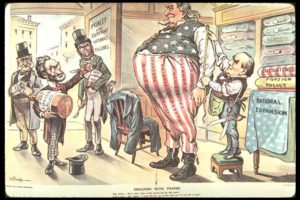

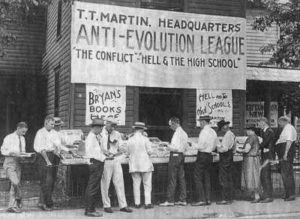





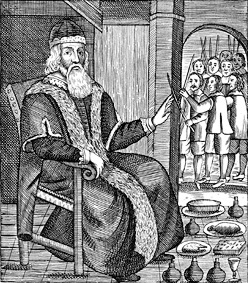





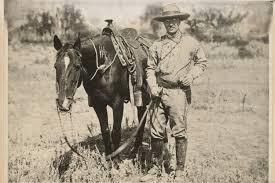 Top: Real fraud. Bottom: Real cowboy.
Top: Real fraud. Bottom: Real cowboy.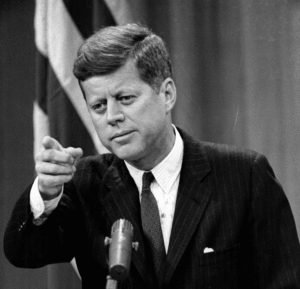


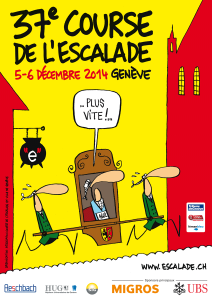



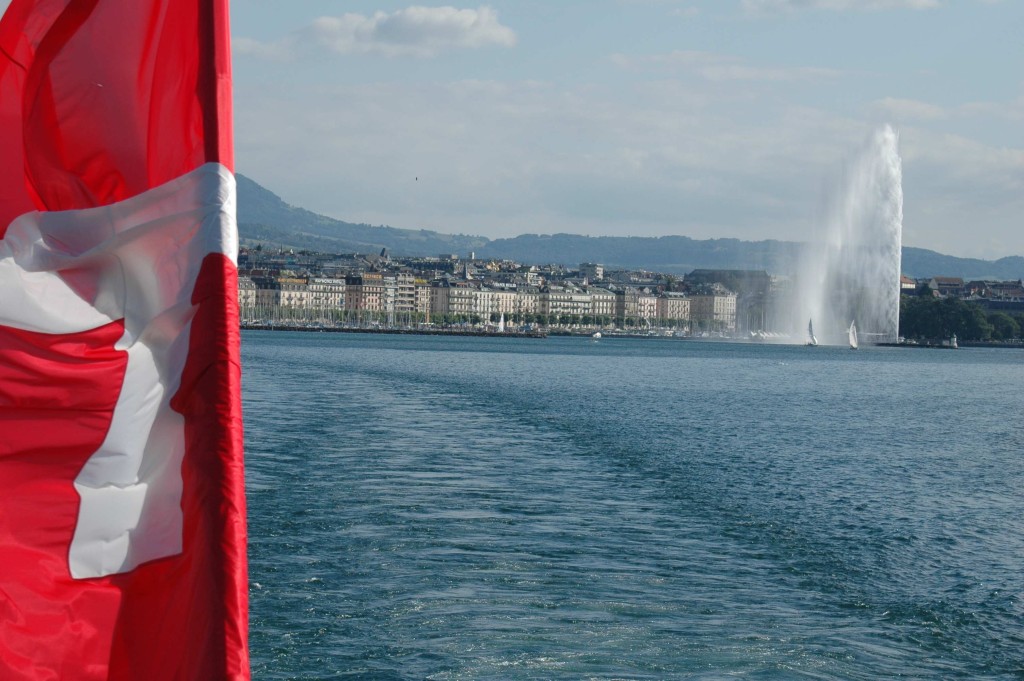

 ited Nations.
ited Nations.









 Google and China:
Google and China:


 Regina Berlinghof, IT specialist by day, authoress and publisher of ancient spiritual and lyrical texts for YinYang Media by night, has hung texts of the Charter 08, a free speech manifesto for the people and artists of China. “Human rights are not given by the state,” one page states boldly, “rather, they are rights that each individual possesses at birth.” At birth is an interesting concept. And possession, too. Possessions are eminently fragile. They can be bought, taken, or even embezzled away. “A Chinese couple came by and nodded approvingly,” she points out. “You are the only one who actually stopped to find out more. Other journalists came by, but they didn’t take notice,” she points out sadly. We eat a few macadamia nuts and talk of the great Chinese thinkers, the artists, they are always the true value of a nation. And behind its army of bureaucrats, China has a grand culture that stretches back to the days of Gog and Magog. Alas, it has no clout.
Regina Berlinghof, IT specialist by day, authoress and publisher of ancient spiritual and lyrical texts for YinYang Media by night, has hung texts of the Charter 08, a free speech manifesto for the people and artists of China. “Human rights are not given by the state,” one page states boldly, “rather, they are rights that each individual possesses at birth.” At birth is an interesting concept. And possession, too. Possessions are eminently fragile. They can be bought, taken, or even embezzled away. “A Chinese couple came by and nodded approvingly,” she points out. “You are the only one who actually stopped to find out more. Other journalists came by, but they didn’t take notice,” she points out sadly. We eat a few macadamia nuts and talk of the great Chinese thinkers, the artists, they are always the true value of a nation. And behind its army of bureaucrats, China has a grand culture that stretches back to the days of Gog and Magog. Alas, it has no clout.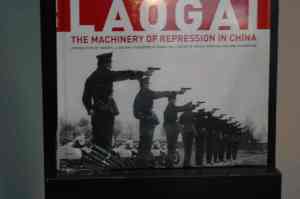 Six Sigma meets the Gulag, essentially. China’s motto at the fair is “Tradition and Innovation,” (two buzz-terms used ad nauseam by anyone from distinguished watch makers to tourist offices around the world). Traditional law meets innovative means to mete it out and profit. The law of supply and demand applied to human beings, who are in large supply in China, and always have been; the supply always a little larger than demand, so it is cheap. Organ harvesting at the killing field, a case for just-in-time delivery. A literal understanding of the term human resources. The result: fantastic growth. Great idea for Europe’s sclerotic economy, Mr. Schwartz, no? It was tried here, didn’t work out that well, but maybe now it could be tried again. After all, who really cares as long as the toys are cheap.
Six Sigma meets the Gulag, essentially. China’s motto at the fair is “Tradition and Innovation,” (two buzz-terms used ad nauseam by anyone from distinguished watch makers to tourist offices around the world). Traditional law meets innovative means to mete it out and profit. The law of supply and demand applied to human beings, who are in large supply in China, and always have been; the supply always a little larger than demand, so it is cheap. Organ harvesting at the killing field, a case for just-in-time delivery. A literal understanding of the term human resources. The result: fantastic growth. Great idea for Europe’s sclerotic economy, Mr. Schwartz, no? It was tried here, didn’t work out that well, but maybe now it could be tried again. After all, who really cares as long as the toys are cheap.

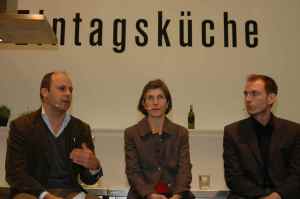


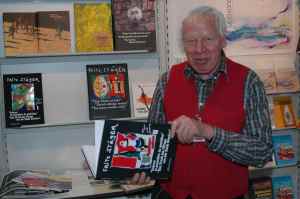

 and iPhones and other toys and the problems we encountered. Hers seemed to be vaguely related to too much work. Mine with editors not bothering to answer their emails. “We are overworked, I sometimes don’t even open my mails, there are so many,” she retorted, tersely. Well, I think, how much would it cost to hire someone to do it, lord knows, there are enough intelligent and capable people out of work right now. But instead, I point out that Hermann Hesse, besides all the novels and stories and poems, also wrote 35,000 letters on an old black typewriter. She looks at me: “I hate Hesse,” she says, and ends the conversation by staring intently at her manuscripts.
and iPhones and other toys and the problems we encountered. Hers seemed to be vaguely related to too much work. Mine with editors not bothering to answer their emails. “We are overworked, I sometimes don’t even open my mails, there are so many,” she retorted, tersely. Well, I think, how much would it cost to hire someone to do it, lord knows, there are enough intelligent and capable people out of work right now. But instead, I point out that Hermann Hesse, besides all the novels and stories and poems, also wrote 35,000 letters on an old black typewriter. She looks at me: “I hate Hesse,” she says, and ends the conversation by staring intently at her manuscripts.




